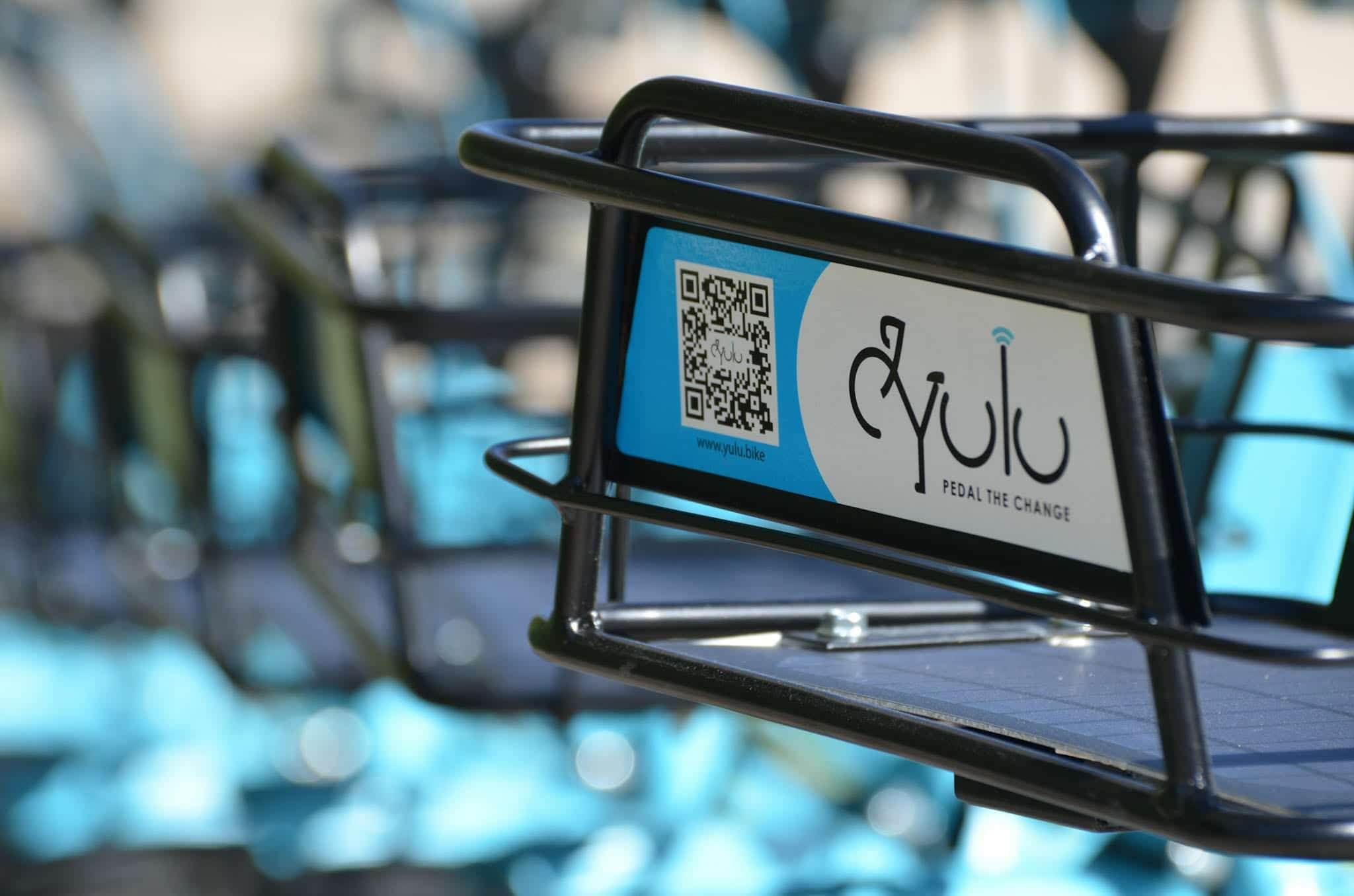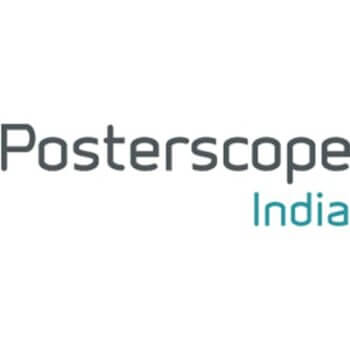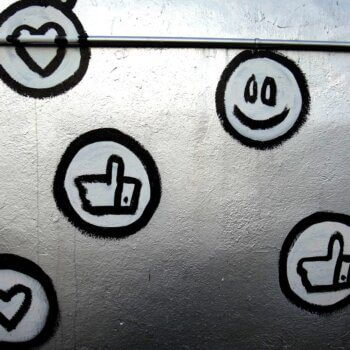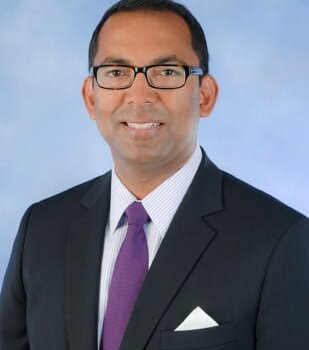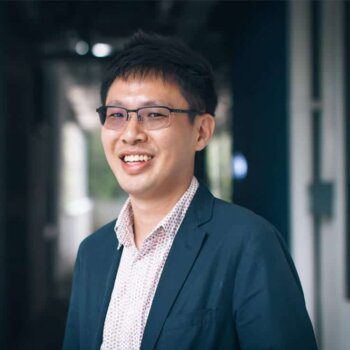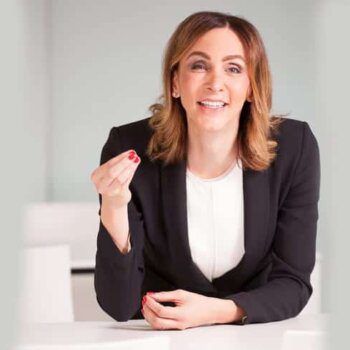Tell us about yourself and how Yulu was born:
I grew up in Kanpur, my family was, and till date remains business oriented, I was the first to be given the liberty to pursue my higher studies. I happened to go to IIT Kanpur which taught me many things including how to be independent.
I was lucky to be surrounded by very capable people, this gave me a reason to dream big. Post my graduation I joined a startup in Bangalore through campus placements. At that point in my life, I didn’t have much clarity about life but I knew one thing for sure that I want to do something on my own, with that intent I ended up working for startups for the most part of my professional career. Rather than working for a big company I ended up working for a startup in Bangalore. That was my first job, I was a software engineer although I specialised in mechanical engineering, I realised after 2 years that I did not feel in my element. I loved technology, and the power of technology, the problems it can solve but I understood, that coding isn’t my strong suit, it is not a part of me.
I opted to change where I work and decided to work for Citi bank. I was part of the IT team which created solutions for the banking industry, but my role involved product management to a large extent. Although it was closely associated with technology, it did not involve coding. I was then blessed with the opportunity to work for another startup, where I worked with its founders. Post that I started my own company before InMobi which I ran for almost 6 months, very short lived. Naveen was moving back to India and he said let’s start something together. So that’s how InMobi was created.
At InMobi, I played various roles like revenue and region building, the company had to make money. Both Abhay and I co-built this whole revenue engine. After eleven years of this, I began to think, what am I missing out on, I didn’t want to have the regret of missing something. I realised I wanted to do something for social welfare, to create an impact. I figured out the problems faced, ones that were social and personally faced. I paid attention to education and healthcare at the beginning, realised that these are not problems I am personally facing. Then I paid attention to the problem of traffic, we spend about two to three hours every day on pollution.
The mess of traffic, air pollution caused due to it and otherwise is something we are all bound to face regardless of our economic and social standing, even if you are the richest man in the country you go through it. I made a decision to act on this problem – Okay, it’s a big enough problem. Our country has an ambitious growth rate and in order for this to be achieved, and for our economy to grow, all our cities and the country as a whole needs to be more efficient. The economy grows for three reasons:
1. Movement of the money,
2. Movement of the goods
3. Movement of the people.
If these factors are efficient, the economy actually grows exponentially quick. Realising, in a way it is nation-building, we are solving problems for the happiness of the people. Finally, I decided this is the problem we are going to tackle, this is how Yulu was formed.
What is Yulu?

There were two things which come to mind – Human-powered and battery power.
As both of these were the way to run a vehicle and cause no harm to the environment. This made Yulu, the concept and perspective. We wanted an interesting name which could be remembered and we derived the inspiration from Yahoo! More importantly, it meant a very beautiful word in one of the Chinese languages, Yulu means simple. And we thought that every complex problem we have a simple solution and it resonated.
How did the idea of cycle come up & not the battery?
It was a strategy, we have bet EV as a part of the execution plan. We started off with a bicycle because moulding a bicycle to our use is actually much easier than making a change in an EV product. This will make you aware, if you should create a new motorcycle, it is a three to four year journey that you have to go through, without even knowing if people will buy this thesis/product, you spend 3 years bringing something up which you are not sure if people will buy or use is and that is probably not a good idea. So we thought that bicycles meet the purpose as it takes two and a half months to design and six weeks to manufacture. In four months we had something we could use, while in the case of EV you need a much longer cycle. We will be actually coming up with EVs in next couple of months, also running the business, understanding this sector we realised that bicycles are better, additionally in this process, some bicycles got vandalised and some were stolen.
What is the technology behind Yulu?

How is the maintenance of the bike done?
Our wheels are solid wheels which don’t puncture. We started off with pneumatic tyres or traditional tubed tyre. In China, they would use solid types, there is no tube in it. I had a fear that they might not work well in India. Rather than going with the solid tyre, we had actually got some pneumatic types and we saw that they get punctured. Close to ten per cent (10%) of our bikes will be punctured in a month which is a pretty high number, the challenge with the puncture was that its tube used to get damaged as users would still ride punctured bikes. The solid tyre bike would be heavier than the pneumatic tyres. When both the bikes are kept together we can feel a significant difference, when the solid tyre bike is given in isolation we would actually not notice the ten per cent (10%) extra heaviness of the solid tyre. We realised decided that it’s better to go with solid tyres. The only real maintenance we have to do is to clean it otherwise they are good to go. We have a maintenance team assigned per area and we use the cluster approach.
Did you face any particular difficulties early for getting permissions or approvals?
Bicycles don’t come under motor vehicles act, you can operate it without any special permission. It was actually a good thing, having said that we thought that this business potential can be achieved only when the city and government are on your side being one of the stakeholders. From the very beginning since we started talking to city officials from Pune and Bangalore, started sharing the benefits of how bicycles can add value and how people will be using it, they would ask us how they can contribute to creating such an ecosystem. We would request for the parking spot and bike lane because ultimately this is the required infrastructure needed to create such an ecosystem.
In the beginning, part one of the business we started off with tech parks where they gave us their private space not involved with the city. Ultimately we had to put the bike in the railway station, bus station, all the public places which are accessible to the public. Our experience in dealing with the city was exceptionally good, open as they were also struggling with the traffic. The limitation I faced involved the time taken due to the lack of proper framework in India, bureaucrats also have to follow a particular process with regards to getting approvals. In Pune, we were lucky, this whole process took only two months, in Bangalore from the day we started talking to officials to receiving a formal paper, it took around 9-10 months. We have always had their blessings. Now that we have them as formal partner which makes things better, I expect us to expand to further cities, we’ll have the same journey but I feel that it should now be easier as most of the bureaucrats in big cities keep in touch with each other, they don’t have to reinvent the wheel.
There were operational challenges, and legally we were okay. Operational challenges included how to find people for bare maintenance. In India, being a bicycle mechanic is looked down upon or people who are bicycle mechanics l have their own shop are busy with their own business, they don’t want to move around the city to fix & repair bikes. We had to struggle in the beginning, informing the operations team because finding 2-3 people to do one cluster or pin code was okay but the moment we are handling the entire city, then getting those twenty to fifty people was a huge challenge. We had to go back to basic, we started finding people who are willing to learn and then be groomed. Inspired by the approach of Infosys and the Mysore training centre, we did the same. We are working with people who are directly trained in-house for some life skills and then receive professional training for 2-3 weeks and start with a basic job, over time they start becoming better. The long shot is, hire them, groom them and they become your staff. We had underestimated hiring and fully depended on the agencies where we thought they would supply us with people resource, but that did not happen. Dealing with vandalism and theft, we had to bring in awareness where had the corporate to ride the cycle and help people understand that it is for people to use and not to damage. We also had police support to get the message spread and create awareness. With more awareness, we are seeing the growth of responsible citizens coming onboard as customers as well as partners.
What’s your overall view on this industry on a global scale and how is it growing in India?
There is only one outlier, which is China. The Chinese industry has become massive in the last two years. From practically no shared bikes to around fifteen million shared bikes are on road just in China. They have transformed completely, we are on it. Outside China, the market is very shattered, for example in the United States of America, the number of shared bikes and EV put together would be around 200-300K. In India, it would be around 40-50K including the smart bikes and micro mobility vehicles. China has shown us that, this is big and it can happen in any market, and other countries are still figuring it out. The reason why it got big in China and is growing massively is that they have got the infrastructure and have got adequate funding, also the problem of traffic congestion, air pollution is a government supported the initiative. For the same thing to happen in India, we need dedicated lanes for bicycles and designated areas for their parking. We are building, city by city so it will be a bit slower but we believe that this is where the world is now moving.
Uber also is now focusing on micro mobility, their insights are for the trips with distances below 2 miles, riders don’t need cars. The new CEO, Dara is very clear, that they want to reduce car ownership. Earlier they provided car service for a ride but now, they prefer two-wheelers as well, so why not bus or metro. Their vision is to make commute seamless and frictionless. In that vision, small vehicles are also an important aspect. We understand that this industry is up for disruption, where there is intriguing product development, usage of technology and bunch of interesting things happening. It’s becoming an ecosystem, there are players around the system and this is how it is evolving and becoming a technology first business.
Best piece of advice and criticism while starting up?
If you are doing something which is driven by a problem then I think it’s a very good start. Believe in your passion and empathy towards the problem on how to solve it. Believing that it can be solved, I am that person. Things are bound to change with time. In many cases, your idea can be ahead of time, but action can be taken on it at the right moment. When InMobi started, we wanted to fix the advertising piece in the context of a country like ours, we thought that mobile advertising will be big. Back then there were small phones, running on 1.5G and people were laughing at us when we pitched our idea. We started off with SMS then we realised it wasn’t happening, then we pivoted to mobile web and then iPhone/Android happened. We had no idea that Apple or Android will be creating something like this or this will happen, we had a belief that it will happen as it is very convenient for not just talking but also for browsing the internet among other things. The same way Yulu, I have seen the burning problem of traffic congestion and pollution in our way as an obstacle. There has to be some solution, and I have picked a path and use this path to help solve this problem in this manner. The solution will evolve over a period of time, as long as we are committed, we’ll figure the path to our goal. And as long as there are people who are backing me either by being as a team or financial investors, sooner or later we’ll get there.
Now in this journey when we started a lot of people came and said that India has no bike track, no one is riding a bicycle. What about the rain? What about the saree, what about the eggs? What about my meetings? What about my sweat? All sorts of objections. But for me, all these are the objections of the use cases which might not work. Let me change the perspective, what if I say my vision is clear and can I find some use cases where this works? And I only want to keep 1% of people happy, Can I make 1% improvement for our tomorrow? And my answer was clear that I had to find those pockets in the city where we gave it to people who were waiting endlessly on their phone for an Uber or walking or getting stuck in their car, it was a super hit product. While there were problems, like no track, there is pollution, there is block, they were smaller problems because for someone else the pain in the problem of moving from A to B that is the biggest the problem, and that’s what we help them overcome. Not having a bike-track is a problem, that’s why we started working with the city, but that partnership with the city will give me results after one or two years, so what will take naturally one or two years should not stop me pursuing something in life. We did have problems but everything is reducing slowly, we are solving one problem at a time.
The best advice that drives you when you are low?
There are two ways to do something, and I understood it by going through this journey twice.
1. If your belief in the problem is strong, you will focus on finding the solution.
2. Do what you love.
If you believe in something, you won’t worry about the journey, the difficulty that you’ll be facing in the journey. There will be ups and downs. I am talking about entrepreneurship and not everyone is cut out to be an entrepreneur, some don’t have the need for it when their goals are different. Everyone has a unique goal, personal to themselves. As far as entrepreneurs are concerned I believe that passion for the problem and your real commitment to solving it that is the most important thing, and if that exists, then you are capable and you can make it. My theory of capability is that if you are immensely hardworking you can make it. The advice which I give typically to any entrepreneur, I ask do you have necessary oxygen (financially & mentally) for that on the personal level. No situation must arise where you are full of ambition just like you take a flight but in mid-air, you realise there is no fuel and despite having the best crew, pilot, aircraft but there is no fuel, so that should not happen. Your personal life has to be taken care of making sure your monthly bills and expense are taken care before your business starts to give you enough and more, that’s the hygiene. After this, the passion for your ideas comes in if you have both of these, then go for it. It will happen!
Interviewer: Akhil Menon
Editor: Simran Mehar
